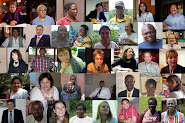 Is using business practices to address poverty an idea whose time has come? One indication is that the top two gurus in the The Thinkers 50 biennial poll are C.K. Prahalad, who wrote The Fortune at the Bottom of the Pyramid, and Bill Gates who is now increasingly known for his focus on global health, development, and education. What unites these two individuals is the sense that we need new approaches to dealing with the issues of poverty.
Is using business practices to address poverty an idea whose time has come? One indication is that the top two gurus in the The Thinkers 50 biennial poll are C.K. Prahalad, who wrote The Fortune at the Bottom of the Pyramid, and Bill Gates who is now increasingly known for his focus on global health, development, and education. What unites these two individuals is the sense that we need new approaches to dealing with the issues of poverty.Here’s what Gates had to say on the subject at his 2007 commencement address at Harvard University:
We can make market forces work better for the poor if we can develop a more creative capitalism – if we can stretch the reach of market forces so that more people can make a profit, or at least make a living, serving people who are suffering from the worst inequities. We also can press governments around the world to spend taxpayer money in ways that better reflect the values of the people who pay the taxes. If we can find approaches that meet the needs of the poor in ways that generate profits for business and votes for politicians, we will have found a sustainable way to reduce inequity in the world.
Prahalad is perhaps the leading agent of this line of thinking. In his landmark book The Fortune at the Bottom of the Pyramid he argues:
For more than 50 years, the World Bank, donor nations, various aid agencies, national governments, and lately, civil society organizations have all fought the good fight but have not eradicated poverty ... If we stop thinking of the poor as victims or as a burden and start recognizing them as resilient and creative entrepreneurs and value-conscious consumers, a whole new world of opportunity will open up. Four billion poor can be the engine of the next round of global trade and prosperity ... [and] a source of innovations.
Prahalad was spotlighted in a 2006 BusinessWeek profile that offered a compelling case for why the BoP matters to business. More recently, Prahalad looked ahead to the future at the 2007 BOP conference, paying special attention to environmental concerns (an hour-long video clip of his presentation is posted online).
The focus of the best business minds on ending poverty is cause for optimism, not only for their ideas and actions but for their ability to inspire many more of us to lend our own efforts to this great cause.



















No comments:
Post a Comment